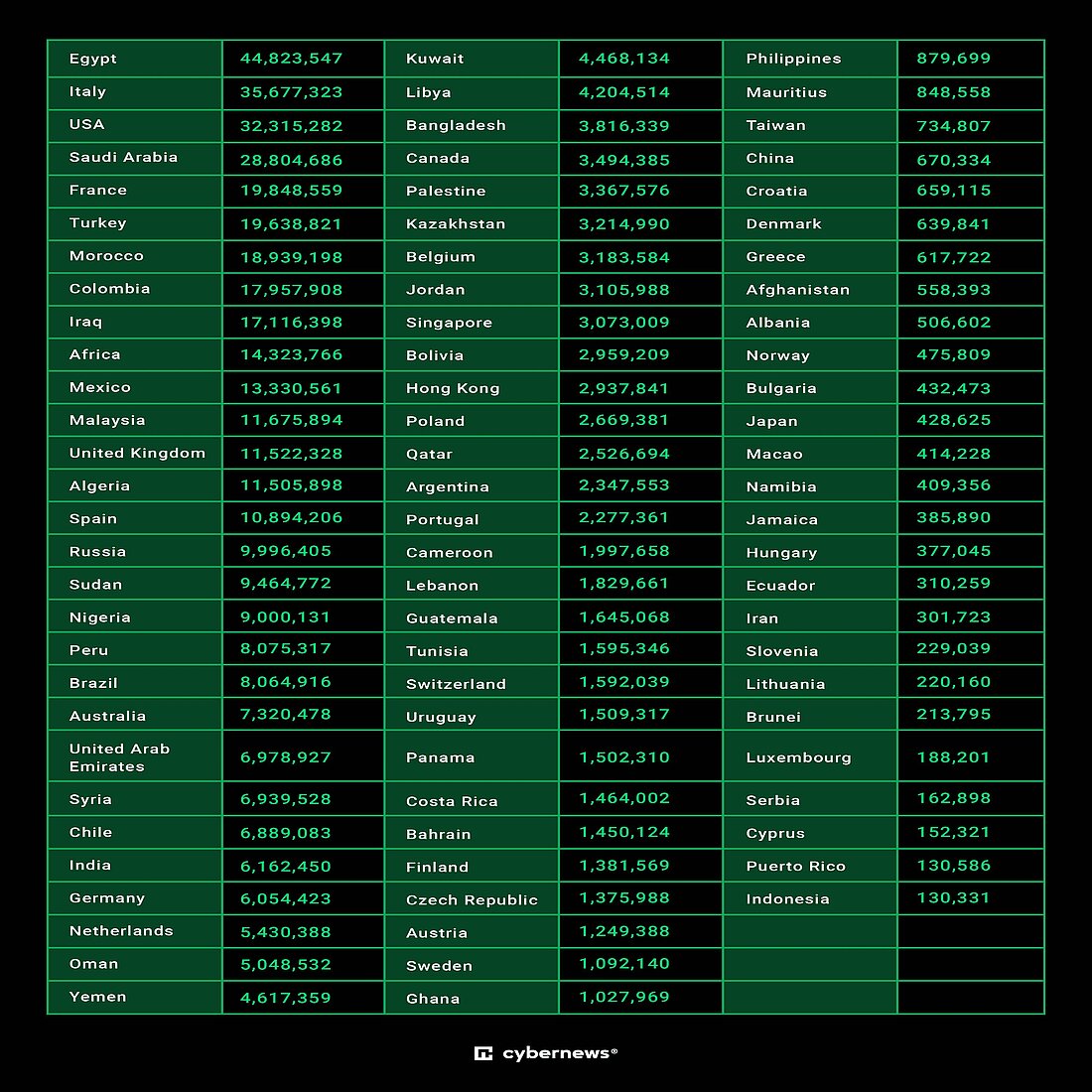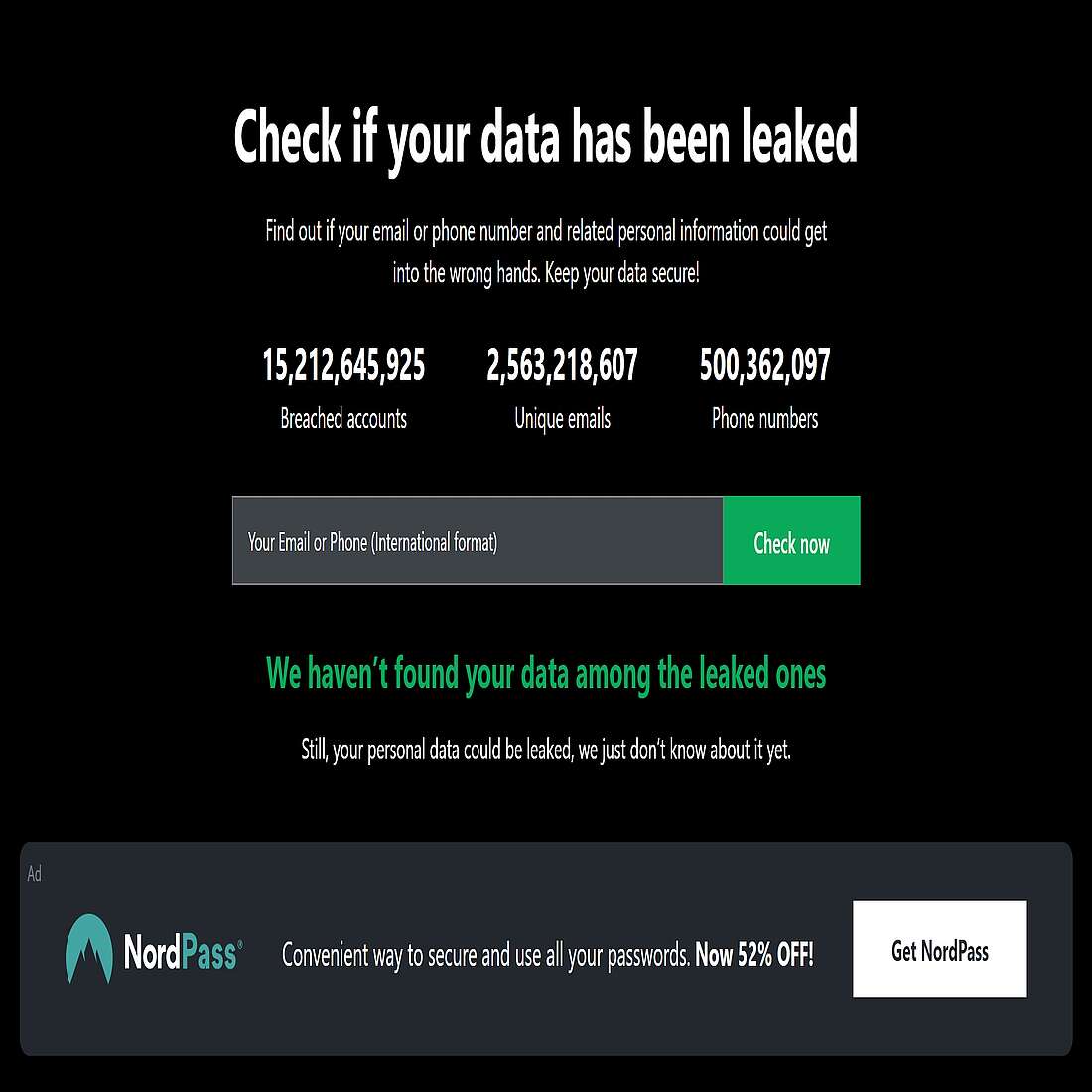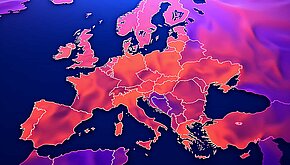- Why Us?
- Features
White Label
For SaaS Platforms & Agencies
Provide our complete analytics suite to your clients, directly within your own interface and with your/their own branding. Discover Analytics-as-a-Service and White Label Analytics. Great benefit, minimal effort.
- Pricing
- White Label
- Success Stories
- Partner
- ResourcesExpand Your Knowledge

Simon Coulthard November 29, 2022
2 min
WhatsApp Data Breach of 487 Million Users

WhatsApp, which boasts a user base of over two billion people, appears to be facing data and privacy issues.
On November 16, according to a Cybernews article, an unknown vendor posted the personal information of about 487 million WhatsApp users from 84 countries for sale on a hacking community forum.
As a reaction to this, a WhatsApp spokesperson said, "The claim written on Cybernews is based on unsubstantiated screenshots. There is no evidence of a ‘data leak’ from WhatsApp."
Affected Countries by Data Breach

About 32 million phone numbers from the US have been revealed.
The most recent data hack in India has impacted over 6 million WhatsApp users. Millions of users' data from various nations, including Egypt, the UK, Italy, France, Saudi Arabia, Russia, and more, have also had their data exposed.
The threat actor claimed to be selling the US dataset for $7,000, the UK dataset for $2,500, and the German dataset for $2,000, according to Cybernews.
The news source affirms the validity of the leaked WhatsApp numbers despite the lack of details regarding how the data was obtained.
Head of the Cybernews research team, Mantas Sasnauskas, said “In this age, we all leave a sizable digital footprint – and tech giants like Meta should take all precautions and means to safeguard that data. We should ask whether an added clause of 'scraping or platform abuse is not permitted in the Terms and Conditions' is enough. Threat actors don't care about those terms, so companies should take rigorous steps to mitigate threats and prevent platform abuse from a technical standpoint.”
When Cybernews contacted Meta, the parent company of WhatsApp, there was no quick answer - they are still waiting for a response to this.
How to Verify if Your Data Has Been Leaked

You can check out if your data has been hacked by going to the Cybernews website and following the next steps:
- Add your email address or phone number into the field presented above
- Click Check Now
- See the results on the page
Why WhatsApp Users Should Exercise Caution
That being said, if you’re using Whatsapp, please be careful since personal data collected by hackers is mainly utilized for smishing and vishing attacks. These actions are usually implemented by sending a deceitful link through a phone message or email.
Therefore, specialists advise users to be wary of any calls from unknown numbers, as well as unsolicited calls and messages.
Share article
Get Started for Free
Gain World-Class Insights & Offer Innovative Privacy & Security











